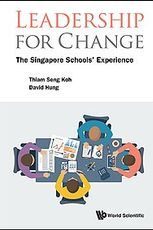
Leadership for Change: The Singapore Schools’ Experience
Authors : Thiam Seng Koh (National Institute of Education, Singapore), David Hung (National Institute of Education, Singapore)
Publisher : World Scientific
ISBN : 978-981-3227-30-9 (Hardcover), 978-981-3236-84-4 (Softcover)
"What can be done to transform a school system that has been driven by a focus on testing and rankings and reconstruct it into one that promotes the holistic development and growth of all of its students? This is the insistent question that is explored in 'Leadership for Change: The SingaporeSchools' Experience.' The authors show how steering from the top, leadership from the middle, and innovation from below all can work together to produce a virtuous circle of continuous learning and improvement. This is essential reading for all change leaders, wherever they may be found."
-- Professor Dennis Shirley
Editor-in-Chief, Journal of Educational Change
Lynch School of Education, Boston College
"'Leadership for Change: The Singapore Schools' Experience' is both a timely and important contribution to the growing literature on Singapore's education system. The editors Thiam-Seng Koh and David Wei-Loong Hung ably draw upon their own deep knowledge, both of the system and the various levels of leadership, and the insights of the 10 contributors who have both practitioner expertise and draw upon the rich database at NIE's Office of Education Research.
The books' unique contribution is its focus on school leadership in Singapore in historical, contemporary and future perspectives. The focus on the role of leadership for sustaining innovation, the possibilities inherent in 'leadership from the middle', and partnerships for example provide a nuanced picture of leadership in practice in the complex ecology of a system seeking to engender a shift from transmissive to knowledge building pedagogies.
Well researched and clearly written. Essential reading for both Singaporean educators and students of comparative and international education."
-- Professor S Gopinathan
Adjunct Professor
Lee Kuan Yew School of Public Policy
National University Singapore
"Singapore has been a model of planned change: the success of its education system witnesses the importance of planning for development. But all education systems are now facing challenges that call for innovative and flexible responses. In this highly readable collection the authors offer ecological leadership as a way of sustaining a healthy tension between central planning and innovative responses to new demands. The chapters give fascinating accounts of how school leadership can shape schools to be future-oriented. It is a must read for all those who believe there is more to schooling than regurgitating past knowledge and more to leadership than being a manager."
-- Professor Anne Edwards
Professor Emeritus
University of Oxford
"A common question asked about the success of the Singapore education system is 'How did you do it?' To which a concise response is 'Good School Leaders and Good Teachers'. This book provides a strong elaboration of the former, setting out policies and initiatives that serve to help build the latter. Starting from a historical context, and laying out the policies and initiatives that continually build on earlier foundations throughout the years, a picture emerges of a pragmatic and adaptive evolution of Singapore's educational landscape, particularly how the system response to a changing context. The next question is whether this can continue given the increasingly complex and uncertain environment. The leadership mindset and the educators' collective efforts shared in this book provide a hint that the future can be faced with a substantial dose of optimism and purpose."
-- Professor Horn-Mun Cheah
Assistant Provost
Dean, School of Human Development and Social Sciences
Singapore University of Social Sciences
"A must read for any current and aspiring leader in education. The book considers the role of educational leadership from multiple but synergistic perspectives of the teacher, school leaders, and policy makers. It articulates and argues for an ecological imperative, where leadership at multiple levels has to be agentic yet coordinated. Identification of teachers' epistemic change as a key lever for transformational impact, together with the attendant processes and structures that can potentially facilitate such change is a timely and significant contribution of the work."
-- Professor Manu Kapur
Professor and Chair of Learning Sciences and Higher Education
ETH Zürich
"The book provides a range of deep insights and rich descriptions of what makes Singapore schools among the most successful in the world. A must read for school leaders and policy makers everywhere who are striving to take their schools to the next level."
-- Professor Allan Walker
Dean, Faculty of Education and Human Development
Director, Asia Pacific Centre for Leadership and Change
The Education University of Hong Kong
"This is a timely book for policy makers, educators, stakeholders and everyone who is interested in education in Singapore. The sections on preparation for the future are well discussed, pertinent and provided useful ideas to move forward in sustaining Singapore's educational success."
-- Associate Professor David Ng
Policy and Leadership Studies Academic Group
National Institute of Education, Singapore
"This is a must-read book on school leadership. The book provides insightful analyses of empirical case studies in Singapore schools, portraying how leadership for change towards school improvements takes place. The case studies provide particular attention towards the process of co-innovation, co-production and co-construction in leadership development. The book highlights the evolvement of apprenticing leadership that brings about epistemic change of teacher leaders from being unwilling in the first place, to becoming tolerant and later accepting the need for change for school improvement. The book provides vivid examples of the evolvement of teacher leadership, and the significance of leadership from the middle, which form the crux of ecological leadership. Most importantly, the book showcases the open-mindedness of the school system in Singapore, and shows how new leadership concepts emerge in the process of developing teacher-led professionalization in schools."
-- Professor Wing-On Lee
Distinguished Professor
Zhengzhou University, China
"This important book examines the transformation of the Singaporean education system, which left behind traditional methods of teaching and learning, and altered the role of education leaders, for the sake of equipping students with skills which might enable them to succeed in the changing global knowledge economy of the twenty-first century. The complex process is one which many education systems across the world are now examining."
-- Professor Ami Volansky
School of Education
Tel-Aviv University
-- Professor Dennis Shirley
Editor-in-Chief, Journal of Educational Change
Lynch School of Education, Boston College
"'Leadership for Change: The Singapore Schools' Experience' is both a timely and important contribution to the growing literature on Singapore's education system. The editors Thiam-Seng Koh and David Wei-Loong Hung ably draw upon their own deep knowledge, both of the system and the various levels of leadership, and the insights of the 10 contributors who have both practitioner expertise and draw upon the rich database at NIE's Office of Education Research.
The books' unique contribution is its focus on school leadership in Singapore in historical, contemporary and future perspectives. The focus on the role of leadership for sustaining innovation, the possibilities inherent in 'leadership from the middle', and partnerships for example provide a nuanced picture of leadership in practice in the complex ecology of a system seeking to engender a shift from transmissive to knowledge building pedagogies.
Well researched and clearly written. Essential reading for both Singaporean educators and students of comparative and international education."
-- Professor S Gopinathan
Adjunct Professor
Lee Kuan Yew School of Public Policy
National University Singapore
"Singapore has been a model of planned change: the success of its education system witnesses the importance of planning for development. But all education systems are now facing challenges that call for innovative and flexible responses. In this highly readable collection the authors offer ecological leadership as a way of sustaining a healthy tension between central planning and innovative responses to new demands. The chapters give fascinating accounts of how school leadership can shape schools to be future-oriented. It is a must read for all those who believe there is more to schooling than regurgitating past knowledge and more to leadership than being a manager."
-- Professor Anne Edwards
Professor Emeritus
University of Oxford
"A common question asked about the success of the Singapore education system is 'How did you do it?' To which a concise response is 'Good School Leaders and Good Teachers'. This book provides a strong elaboration of the former, setting out policies and initiatives that serve to help build the latter. Starting from a historical context, and laying out the policies and initiatives that continually build on earlier foundations throughout the years, a picture emerges of a pragmatic and adaptive evolution of Singapore's educational landscape, particularly how the system response to a changing context. The next question is whether this can continue given the increasingly complex and uncertain environment. The leadership mindset and the educators' collective efforts shared in this book provide a hint that the future can be faced with a substantial dose of optimism and purpose."
-- Professor Horn-Mun Cheah
Assistant Provost
Dean, School of Human Development and Social Sciences
Singapore University of Social Sciences
"A must read for any current and aspiring leader in education. The book considers the role of educational leadership from multiple but synergistic perspectives of the teacher, school leaders, and policy makers. It articulates and argues for an ecological imperative, where leadership at multiple levels has to be agentic yet coordinated. Identification of teachers' epistemic change as a key lever for transformational impact, together with the attendant processes and structures that can potentially facilitate such change is a timely and significant contribution of the work."
-- Professor Manu Kapur
Professor and Chair of Learning Sciences and Higher Education
ETH Zürich
"The book provides a range of deep insights and rich descriptions of what makes Singapore schools among the most successful in the world. A must read for school leaders and policy makers everywhere who are striving to take their schools to the next level."
-- Professor Allan Walker
Dean, Faculty of Education and Human Development
Director, Asia Pacific Centre for Leadership and Change
The Education University of Hong Kong
"This is a timely book for policy makers, educators, stakeholders and everyone who is interested in education in Singapore. The sections on preparation for the future are well discussed, pertinent and provided useful ideas to move forward in sustaining Singapore's educational success."
-- Associate Professor David Ng
Policy and Leadership Studies Academic Group
National Institute of Education, Singapore
"This is a must-read book on school leadership. The book provides insightful analyses of empirical case studies in Singapore schools, portraying how leadership for change towards school improvements takes place. The case studies provide particular attention towards the process of co-innovation, co-production and co-construction in leadership development. The book highlights the evolvement of apprenticing leadership that brings about epistemic change of teacher leaders from being unwilling in the first place, to becoming tolerant and later accepting the need for change for school improvement. The book provides vivid examples of the evolvement of teacher leadership, and the significance of leadership from the middle, which form the crux of ecological leadership. Most importantly, the book showcases the open-mindedness of the school system in Singapore, and shows how new leadership concepts emerge in the process of developing teacher-led professionalization in schools."
-- Professor Wing-On Lee
Distinguished Professor
Zhengzhou University, China
"This important book examines the transformation of the Singaporean education system, which left behind traditional methods of teaching and learning, and altered the role of education leaders, for the sake of equipping students with skills which might enable them to succeed in the changing global knowledge economy of the twenty-first century. The complex process is one which many education systems across the world are now examining."
-- Professor Ami Volansky
School of Education
Tel-Aviv University
The book shares stories of the role of school leadership in Singapore, with case studies from selected schools, that provides some insights on how Singapore delivers a high-quality education that had led to it achieving high rankings in TIMMS and PISA. This book will provide both the historical and present contexts of changes in the education system, school leadership and teacher leadership in Singapore that made it what it is today. It will distil some universal principles of educational change that school leaders and policy makers can apply in bringing about educational changes that will enhance the learning experiences of students and prepare them for future challenges.
Thiam-Seng Koh is an Associate Professor at the National Institute of Education (NIE), Singapore. Professor Koh has a wealth of experience from a teacher-trainer and researcher to a school leader and an administrator. He had held senior appointments at the Ministry of Education that included as a Deputy Director involved in policy formulation for university, polytechnic and ITE education and as Director of Educational Technology where he led the implementation of Singapore's 2nd lnfocomm Technology (ICT) in Education Masterplan. As Principal of St. Joseph's Institution, he led the development of the 6-year Integrated Programme leading to the International Baccalaureate Diploma. He initiated various curricular innovations that included special programmes such as ArtScience and Business Design Thinking and student-development initiatives like self-regulated learning to better prepare the students for the future. Before returning to NIE in 2018, his last appointment was the Chief Executive Officer of St. Joseph's Institution International School. Recognised internationally for his expertise in the use of ICT for learning, he has served as a consultant to the Singapore Army, ST Engineering, Intel, and IDA International.
David Wei-Loong Hung is Associate Dean at the Office of Education Research (OER) and Head of the eduLab initiative at the NIE, Singapore. In 2004, he initiated the set-up of the Learning Sciences Laboratory to engage in school-based interventions with the view to changing pedagogy and practice. Grounded in socio-cultural and cultural-historical traditions, Prof Hung's interest lies in designing students' learning in both formal and informal contexts to maximise learner potential. Another significant part of his present work concerns the translation and dissemination of educational innovations, which the eduLab initiative seeks to advance. He is presently serving as a Contributing Editor for Educational Technology, Editor for Learning: Research and Practice, and as an InternationalAdvisory Board member for Asia Pacific Education Researcher.
Liang-See Tan is a Senior Research Scientist with the CRPP, OER at the NIE, Singapore. Her research interests include academic emotion, goal orientation and student outcomes, teacher learning in the area of curriculum differentiation/innovation for high-ability learners and talent development. She works and interacts with local and overseas educational communities and schools closely to promote practitioner inquiry as well as differentiated curriculum and instruction as an advisor, speaker and consultant. Her work has been published in various peer-reviewed journals in education.
Jeanne-Marie Ho is a Senior Teaching Fellow with the OER at the NIE, Singapore. Besides engaging in research, she is involved in the teaching of undergraduates, Heads of Department, and Vice Principals who attend the Leadership in Education Programme (LEP). She was formerly a Vice Principal in two secondary schools in Singapore. Prior to that, she was a Senior Head and Senior Specialist at the Educational Technology Division, Ministry of Education, during which she led a newly formed Research and Development branch. Her PhD analysed the distribution of leadership in supporting ICT implementation in schools. While a Vice Principal in Punggol Secondary, she worked closely with the Head of ICT in the implementation of one-to-one computing for the students.
Azilawati Jamaludin is a Learning Sciences Research Scientist with the CRPP, OER at the NIE, Singapore. Her research interests are in progressive pedagogies and institutional innovations informed by learning theories of embodiment, perception, cognition and action and sociocultural, biological and neural correlates.
Yancy Toh is a Research Scientist with the CRPP, OER at the NIE, Singapore. Her research interests include leadership studies, school reforms, innovation diffusion, complex systems and ICT integration. She has participated in projects funded by the National Research Foundation (NRF) and the Ministry of Education (MOE) where she examines students' informal learning practices as well as the typology of innovation diffusion models across Singapore schools. Her publications include scholarly book chapters, SSCI journal papers, as well as working paper series published by OECD and UNESCO. She is also a member of MOE's Translational Research, Innovation and Scaling (TRIS) Committee and provides consultancy inputs with regard to the efficacy of systemic practices towards building schools' capacity for ICT integration.
Paul Meng-Huat Chua is currently a doctoral student at the NIE, Singapore and UCL Institute of Education, UK. He is in the midst of submitting his thesis on the topic of principals' sense-making of education policies for examination. His other research interests include education leadership, school and system improvement, school quality assurance, reflection and adult learning.
Letchmi Devi Ponnusamy is a Lecturer with the Early Childhood and Special Education Academic Group at the NIE, Singapore. Her research interests includes teachers' instructional and curricular differentiation, curriculum integration and teacher agency. Her research experience includes reviewing and evaluating teacher-designed units and its implementation, as well as supporting teachers in developing learners' higher order thinking competencies across different subject areas. She has published work in educational books and journals focusing on classroom cultures that engender deep, concept-focused learning for learners and exploring teachers' work in such contexts.
Shamala Raveendaran is a Research Associate with the CRPP, OER at the NIE, Singapore. A former secondary school teacher, she counts herself as a student of education with deep interests in the Bourdieusian theories of social capital and habitus. Her research interests include the role of social capital and networks of teachers, schools and sustainability of educational innovations.
Monica May-Ching Lim is a Research Assistant at the CRPP, OER at the NIE, Singapore. A former primary school teacher, her research interests include language acquisition through music, learning communities and school-to school networks that support and encourage teachers' mindset shifts and agency in revolutionising education for more authentic and engaging learning by students.
Galvin Ming-Hui Sng is a Research Assistant at the CRPP, OER at the NIE, Singapore. He has engaged in youth work since 2002, and has taken up varied roles including counselling, affective mentoring, projects facilitation and training. His research interests include student digital literacies, the efficaciousness of cyber wellness education in schools, as well as the motivational and learning needs of low progress students.
Keith Chiu-Kian Tan graduated from the National University of Singapore with a bachelor's degree in psychology with honors. He is a Research Assistant at the CRPP, OER at the NIE, Singapore. Over the years, he has been involved in a few studies that examined teacher learning and teacher leadership and co-authored several publications on teacher learning and leadership.
David Wei-Loong Hung is Associate Dean at the Office of Education Research (OER) and Head of the eduLab initiative at the NIE, Singapore. In 2004, he initiated the set-up of the Learning Sciences Laboratory to engage in school-based interventions with the view to changing pedagogy and practice. Grounded in socio-cultural and cultural-historical traditions, Prof Hung's interest lies in designing students' learning in both formal and informal contexts to maximise learner potential. Another significant part of his present work concerns the translation and dissemination of educational innovations, which the eduLab initiative seeks to advance. He is presently serving as a Contributing Editor for Educational Technology, Editor for Learning: Research and Practice, and as an InternationalAdvisory Board member for Asia Pacific Education Researcher.
Liang-See Tan is a Senior Research Scientist with the CRPP, OER at the NIE, Singapore. Her research interests include academic emotion, goal orientation and student outcomes, teacher learning in the area of curriculum differentiation/innovation for high-ability learners and talent development. She works and interacts with local and overseas educational communities and schools closely to promote practitioner inquiry as well as differentiated curriculum and instruction as an advisor, speaker and consultant. Her work has been published in various peer-reviewed journals in education.
Jeanne-Marie Ho is a Senior Teaching Fellow with the OER at the NIE, Singapore. Besides engaging in research, she is involved in the teaching of undergraduates, Heads of Department, and Vice Principals who attend the Leadership in Education Programme (LEP). She was formerly a Vice Principal in two secondary schools in Singapore. Prior to that, she was a Senior Head and Senior Specialist at the Educational Technology Division, Ministry of Education, during which she led a newly formed Research and Development branch. Her PhD analysed the distribution of leadership in supporting ICT implementation in schools. While a Vice Principal in Punggol Secondary, she worked closely with the Head of ICT in the implementation of one-to-one computing for the students.
Azilawati Jamaludin is a Learning Sciences Research Scientist with the CRPP, OER at the NIE, Singapore. Her research interests are in progressive pedagogies and institutional innovations informed by learning theories of embodiment, perception, cognition and action and sociocultural, biological and neural correlates.
Yancy Toh is a Research Scientist with the CRPP, OER at the NIE, Singapore. Her research interests include leadership studies, school reforms, innovation diffusion, complex systems and ICT integration. She has participated in projects funded by the National Research Foundation (NRF) and the Ministry of Education (MOE) where she examines students' informal learning practices as well as the typology of innovation diffusion models across Singapore schools. Her publications include scholarly book chapters, SSCI journal papers, as well as working paper series published by OECD and UNESCO. She is also a member of MOE's Translational Research, Innovation and Scaling (TRIS) Committee and provides consultancy inputs with regard to the efficacy of systemic practices towards building schools' capacity for ICT integration.
Paul Meng-Huat Chua is currently a doctoral student at the NIE, Singapore and UCL Institute of Education, UK. He is in the midst of submitting his thesis on the topic of principals' sense-making of education policies for examination. His other research interests include education leadership, school and system improvement, school quality assurance, reflection and adult learning.
Letchmi Devi Ponnusamy is a Lecturer with the Early Childhood and Special Education Academic Group at the NIE, Singapore. Her research interests includes teachers' instructional and curricular differentiation, curriculum integration and teacher agency. Her research experience includes reviewing and evaluating teacher-designed units and its implementation, as well as supporting teachers in developing learners' higher order thinking competencies across different subject areas. She has published work in educational books and journals focusing on classroom cultures that engender deep, concept-focused learning for learners and exploring teachers' work in such contexts.
Shamala Raveendaran is a Research Associate with the CRPP, OER at the NIE, Singapore. A former secondary school teacher, she counts herself as a student of education with deep interests in the Bourdieusian theories of social capital and habitus. Her research interests include the role of social capital and networks of teachers, schools and sustainability of educational innovations.
Monica May-Ching Lim is a Research Assistant at the CRPP, OER at the NIE, Singapore. A former primary school teacher, her research interests include language acquisition through music, learning communities and school-to school networks that support and encourage teachers' mindset shifts and agency in revolutionising education for more authentic and engaging learning by students.
Galvin Ming-Hui Sng is a Research Assistant at the CRPP, OER at the NIE, Singapore. He has engaged in youth work since 2002, and has taken up varied roles including counselling, affective mentoring, projects facilitation and training. His research interests include student digital literacies, the efficaciousness of cyber wellness education in schools, as well as the motivational and learning needs of low progress students.
Keith Chiu-Kian Tan graduated from the National University of Singapore with a bachelor's degree in psychology with honors. He is a Research Assistant at the CRPP, OER at the NIE, Singapore. Over the years, he has been involved in a few studies that examined teacher learning and teacher leadership and co-authored several publications on teacher learning and leadership.
"What can be done to transform a school system that has been driven by a focus on testing and rankings and reconstruct it into one that promotes the holistic development and growth of all of its students? This is the insistent question that is explored in 'Leadership for Change: The SingaporeSchools' Experience.' The authors show how steering from the top, leadership from the middle, and innovation from below all can work together to produce a virtuous circle of continuous learning and improvement. This is essential reading for all change leaders, wherever they may be found."
-- Professor Dennis Shirley
Editor-in-Chief, Journal of Educational Change
Lynch School of Education, Boston College
"'Leadership for Change: The Singapore Schools' Experience' is both a timely and important contribution to the growing literature on Singapore's education system. The editors Thiam-Seng Koh and David Wei-Loong Hung ably draw upon their own deep knowledge, both of the system and the various levels of leadership, and the insights of the 10 contributors who have both practitioner expertise and draw upon the rich database at NIE's Office of Education Research.
The books' unique contribution is its focus on school leadership in Singapore in historical, contemporary and future perspectives. The focus on the role of leadership for sustaining innovation, the possibilities inherent in 'leadership from the middle', and partnerships for example provide a nuanced picture of leadership in practice in the complex ecology of a system seeking to engender a shift from transmissive to knowledge building pedagogies.
Well researched and clearly written. Essential reading for both Singaporean educators and students of comparative and international education."
-- Professor S Gopinathan
Adjunct Professor
Lee Kuan Yew School of Public Policy
National University Singapore
"Singapore has been a model of planned change: the success of its education system witnesses the importance of planning for development. But all education systems are now facing challenges that call for innovative and flexible responses. In this highly readable collection the authors offer ecological leadership as a way of sustaining a healthy tension between central planning and innovative responses to new demands. The chapters give fascinating accounts of how school leadership can shape schools to be future-oriented. It is a must read for all those who believe there is more to schooling than regurgitating past knowledge and more to leadership than being a manager."
-- Professor Anne Edwards
Professor Emeritus
University of Oxford
"A common question asked about the success of the Singapore education system is 'How did you do it?' To which a concise response is 'Good School Leaders and Good Teachers'. This book provides a strong elaboration of the former, setting out policies and initiatives that serve to help build the latter. Starting from a historical context, and laying out the policies and initiatives that continually build on earlier foundations throughout the years, a picture emerges of a pragmatic and adaptive evolution of Singapore's educational landscape, particularly how the system response to a changing context. The next question is whether this can continue given the increasingly complex and uncertain environment. The leadership mindset and the educators' collective efforts shared in this book provide a hint that the future can be faced with a substantial dose of optimism and purpose."
-- Professor Horn-Mun Cheah
Assistant Provost
Dean, School of Human Development and Social Sciences
Singapore University of Social Sciences
"A must read for any current and aspiring leader in education. The book considers the role of educational leadership from multiple but synergistic perspectives of the teacher, school leaders, and policy makers. It articulates and argues for an ecological imperative, where leadership at multiple levels has to be agentic yet coordinated. Identification of teachers' epistemic change as a key lever for transformational impact, together with the attendant processes and structures that can potentially facilitate such change is a timely and significant contribution of the work."
-- Professor Manu Kapur
Professor and Chair of Learning Sciences and Higher Education
ETH Zürich
"The book provides a range of deep insights and rich descriptions of what makes Singapore schools among the most successful in the world. A must read for school leaders and policy makers everywhere who are striving to take their schools to the next level."
-- Professor Allan Walker
Dean, Faculty of Education and Human Development
Director, Asia Pacific Centre for Leadership and Change
The Education University of Hong Kong
"This is a timely book for policy makers, educators, stakeholders and everyone who is interested in education in Singapore. The sections on preparation for the future are well discussed, pertinent and provided useful ideas to move forward in sustaining Singapore's educational success."
-- Associate Professor David Ng
Policy and Leadership Studies Academic Group
National Institute of Education, Singapore
"This is a must-read book on school leadership. The book provides insightful analyses of empirical case studies in Singapore schools, portraying how leadership for change towards school improvements takes place. The case studies provide particular attention towards the process of co-innovation, co-production and co-construction in leadership development. The book highlights the evolvement of apprenticing leadership that brings about epistemic change of teacher leaders from being unwilling in the first place, to becoming tolerant and later accepting the need for change for school improvement. The book provides vivid examples of the evolvement of teacher leadership, and the significance of leadership from the middle, which form the crux of ecological leadership. Most importantly, the book showcases the open-mindedness of the school system in Singapore, and shows how new leadership concepts emerge in the process of developing teacher-led professionalization in schools."
-- Professor Wing-On Lee
Distinguished Professor
Zhengzhou University, China
"This important book examines the transformation of the Singaporean education system, which left behind traditional methods of teaching and learning, and altered the role of education leaders, for the sake of equipping students with skills which might enable them to succeed in the changing global knowledge economy of the twenty-first century. The complex process is one which many education systems across the world are now examining."
-- Professor Ami Volansky
School of Education
Tel-Aviv University
-- Professor Dennis Shirley
Editor-in-Chief, Journal of Educational Change
Lynch School of Education, Boston College
"'Leadership for Change: The Singapore Schools' Experience' is both a timely and important contribution to the growing literature on Singapore's education system. The editors Thiam-Seng Koh and David Wei-Loong Hung ably draw upon their own deep knowledge, both of the system and the various levels of leadership, and the insights of the 10 contributors who have both practitioner expertise and draw upon the rich database at NIE's Office of Education Research.
The books' unique contribution is its focus on school leadership in Singapore in historical, contemporary and future perspectives. The focus on the role of leadership for sustaining innovation, the possibilities inherent in 'leadership from the middle', and partnerships for example provide a nuanced picture of leadership in practice in the complex ecology of a system seeking to engender a shift from transmissive to knowledge building pedagogies.
Well researched and clearly written. Essential reading for both Singaporean educators and students of comparative and international education."
-- Professor S Gopinathan
Adjunct Professor
Lee Kuan Yew School of Public Policy
National University Singapore
"Singapore has been a model of planned change: the success of its education system witnesses the importance of planning for development. But all education systems are now facing challenges that call for innovative and flexible responses. In this highly readable collection the authors offer ecological leadership as a way of sustaining a healthy tension between central planning and innovative responses to new demands. The chapters give fascinating accounts of how school leadership can shape schools to be future-oriented. It is a must read for all those who believe there is more to schooling than regurgitating past knowledge and more to leadership than being a manager."
-- Professor Anne Edwards
Professor Emeritus
University of Oxford
"A common question asked about the success of the Singapore education system is 'How did you do it?' To which a concise response is 'Good School Leaders and Good Teachers'. This book provides a strong elaboration of the former, setting out policies and initiatives that serve to help build the latter. Starting from a historical context, and laying out the policies and initiatives that continually build on earlier foundations throughout the years, a picture emerges of a pragmatic and adaptive evolution of Singapore's educational landscape, particularly how the system response to a changing context. The next question is whether this can continue given the increasingly complex and uncertain environment. The leadership mindset and the educators' collective efforts shared in this book provide a hint that the future can be faced with a substantial dose of optimism and purpose."
-- Professor Horn-Mun Cheah
Assistant Provost
Dean, School of Human Development and Social Sciences
Singapore University of Social Sciences
"A must read for any current and aspiring leader in education. The book considers the role of educational leadership from multiple but synergistic perspectives of the teacher, school leaders, and policy makers. It articulates and argues for an ecological imperative, where leadership at multiple levels has to be agentic yet coordinated. Identification of teachers' epistemic change as a key lever for transformational impact, together with the attendant processes and structures that can potentially facilitate such change is a timely and significant contribution of the work."
-- Professor Manu Kapur
Professor and Chair of Learning Sciences and Higher Education
ETH Zürich
"The book provides a range of deep insights and rich descriptions of what makes Singapore schools among the most successful in the world. A must read for school leaders and policy makers everywhere who are striving to take their schools to the next level."
-- Professor Allan Walker
Dean, Faculty of Education and Human Development
Director, Asia Pacific Centre for Leadership and Change
The Education University of Hong Kong
"This is a timely book for policy makers, educators, stakeholders and everyone who is interested in education in Singapore. The sections on preparation for the future are well discussed, pertinent and provided useful ideas to move forward in sustaining Singapore's educational success."
-- Associate Professor David Ng
Policy and Leadership Studies Academic Group
National Institute of Education, Singapore
"This is a must-read book on school leadership. The book provides insightful analyses of empirical case studies in Singapore schools, portraying how leadership for change towards school improvements takes place. The case studies provide particular attention towards the process of co-innovation, co-production and co-construction in leadership development. The book highlights the evolvement of apprenticing leadership that brings about epistemic change of teacher leaders from being unwilling in the first place, to becoming tolerant and later accepting the need for change for school improvement. The book provides vivid examples of the evolvement of teacher leadership, and the significance of leadership from the middle, which form the crux of ecological leadership. Most importantly, the book showcases the open-mindedness of the school system in Singapore, and shows how new leadership concepts emerge in the process of developing teacher-led professionalization in schools."
-- Professor Wing-On Lee
Distinguished Professor
Zhengzhou University, China
"This important book examines the transformation of the Singaporean education system, which left behind traditional methods of teaching and learning, and altered the role of education leaders, for the sake of equipping students with skills which might enable them to succeed in the changing global knowledge economy of the twenty-first century. The complex process is one which many education systems across the world are now examining."
-- Professor Ami Volansky
School of Education
Tel-Aviv University
Buy this book, http://www.worldscientific.com/worldscibooks/10.1142/10633, 9655, false
FAQs
Click on the "Buy this book" button
You can email us at book-review@enago.com and we will get back to you with the next steps shortly.
New Releases
-

Advances in the Molecular Understanding of Colorectal Cancer
-
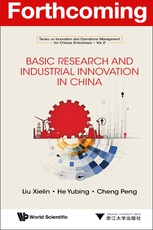
Basic Research and Industrial Innovation in China
-
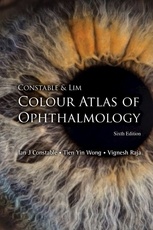
Constable & Lim Colour Atlas Of Ophthalmology: Sixth Edition
-
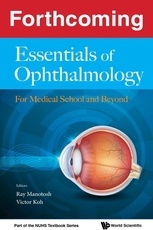
Essentials of Ophthalmology: For Medical School and Beyond
-
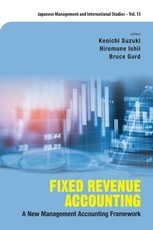
Fixed Revenue Accounting: A New Management Accounting Framework
All featured publishers and authors can avail of a free promotional interview on Enago Academy! Write to us now!
